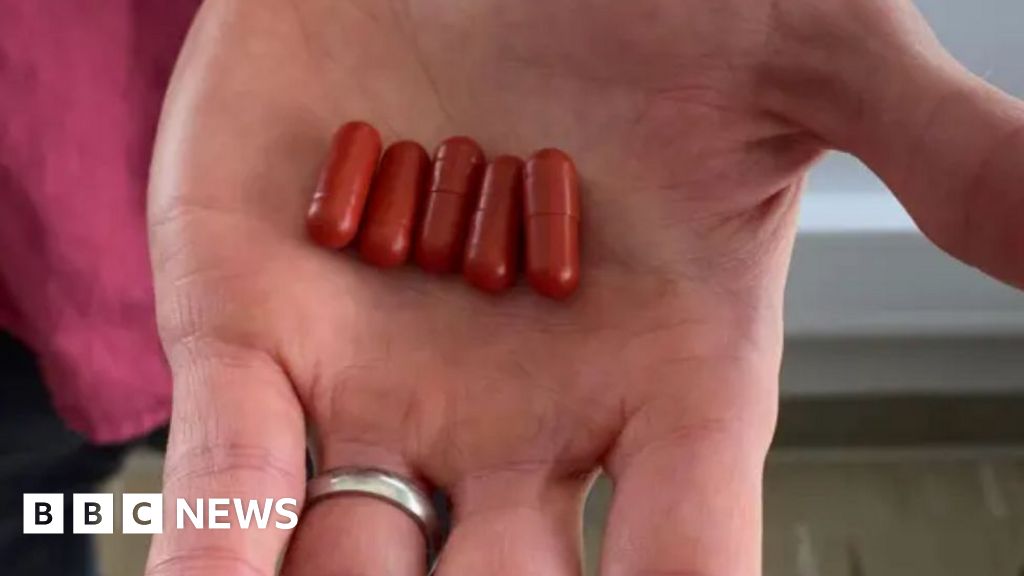ARTICLE AD BOX
Image source, Getty Images
Image caption,The study found no clear evidence of a change in consumption for those who drink at harmful levels
Drinkers who suffered the worst affects of alcoholism did not change their habits when Scotland's minimum pricing was introduced, a study has shown.
Public Health Scotland (PHS) reported minimum unit pricing (MUP) led to some people cutting back on food and energy.
All licensed premises have had to charge at least 50p per unit of alcohol since MUP was introduced in May 2018.
The Scottish government said it would review the final evaluation report from PHS before drawing conclusions.
The level of alcohol MUP was initially set in 2012, with the introduction of the policy delayed until 2018 by a lengthy legal challenge in the years before its introduction.
In May 2021, a study found MUP had already had a lasting impact in Scotland, and that alcohol sales had fallen by 8%.
However, the latest study published by PHS found no clear evidence of a change in consumption or severity of dependence in those who suffered the worst affects of drinking alcohol.
The poorest groups experienced "increased financial strain" as the price rises meant they were spending more on drinks.
Some people then cut back on other expenditure, such as on food and utility bills.
The study, by the University of Sheffield, the University of Newcastle (Australia) and Figure 8 Consultancy Services, looked at the "hard to reach" population of people who drank alcohol at harmful levels, including those dependent on alcohol and those accessing treatment services.
Drinkers with complex needs
In its final report on the study, PHS said researchers found there was also no clear evidence minimum pricing caused negative consequences - such as increased crime, a shift to illicit substances or acute withdrawal - among Scots drinking at harmful levels.
Helen Chung Patterson, PHS public health intelligence adviser, said people who drank at harmful levels were a "diverse group with complex needs" who could have multiple health and social problems.
"They are therefore unlikely to respond to MUP in one single or simple way," she said. "Many are likely to drink low-cost high-strength alcohol affected by MUP and are at greatest risk from their alcohol consumption.
"This population therefore have the potential to benefit the most from MUP but may also continue to experience harms."
Image source, Getty Images
Image caption,Alcohol deaths increased in Scotland in 2020
Prof John Holmes, director of the Sheffield Alcohol Research Group, led the study. He said people with alcohol dependence responded to MUP in different ways.
"Some reduced their spending on other things but others switched to lower-strength drinks or simply bought less alcohol," he said.
"It is important that alcohol treatment services and other organisations find ways to support those who do have financial problems, particularly as inflation rises."
Price review under way
Last year, a group of charities and medical experts urged the Scottish government to increase the minimum unit price (MUP) of alcohol from 50p to 65p, arguing that the positive effects of the policy would be reduced by inflation and the pandemic.
A Scottish government spokeswoman said it would "carefully consider the findings" of the "large and complex study".
Noting that in the year after MUP was introduced there was a 2% decrease in off-trade alcohol sales and a 10% decrease in alcohol specific deaths, she said 2020 showed a 17% increase in alcohol-specific deaths in Scotland.
"It is too early to know whether the changed drinking behaviours during the pandemic are temporary or not, however work on reviewing the level of the minimum unit price MUP is under way, she said.
"We will review the final evaluation report from Public Health Scotland before drawing overall conclusions."
Laura Mahon, deputy chief executive of Alcohol Focus Scotland, welcomed the report.
She said: "Before MUP was introduced there was limited understanding of what effect the policy might have on this group.
"It's encouraging to see that there do not appear to be widespread negative consequences on dependent drinkers.
"However, this study gives us much needed information about the additional support required by the groups included in the research. "
Ms Mahon added that investment was needed in recovery-oriented alcohol services to ensure people got the right support to help them cope with the underlying reasons for drinking.

 3 years ago
58
3 years ago
58








 English (US) ·
English (US) ·